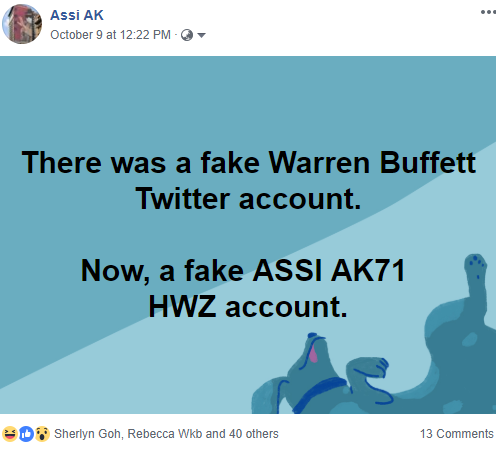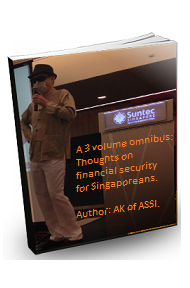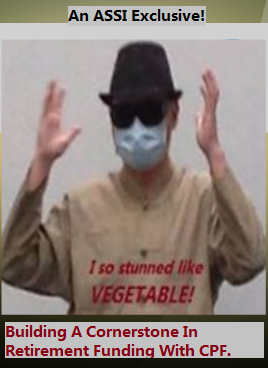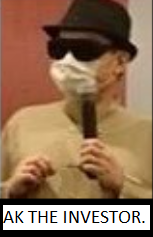For my investments in S-REITs, the biggest thing that happened this year was the reduction in exposure to Sabana REIT.
Some might remember that I first invested in Sabana REIT in March 2011 at 92.5c a unit. As its unit price declined to under 90c, I bought more. It became one of my top two investments in S-REITs for about three years, delivering a distribution yield on cost of about 10% during that time.
I actually started reducing my investment in Sabana REIT in late 2013 and not this year as I started to build a larger position in Croesus Retail Trust then. I chose to reduce my investment in Sabana REIT instead of AIMS AMP Capital Industrial REIT because I felt that the latter was doing a better job of building value for unit holders as an industrial properties S-REIT.
After the major divestment of Sabana REIT early this year, my remaining exposure to the REIT is barely 10% of what it was at its peak. Now, my top three investments in S-REITs are:
1. AIMS AMP Capital Industrial REIT.
2. First REIT.
3. Saizen REIT.
AIMS AMP Capital Industrial REIT's Mr. George Wang constantly adds to his investment in the REIT, aligning his interests with those of minority shareholders'. The management have shown themselves to be capable in creating value for unit holders in their exploitation of existing properties' plot ratios. They have also improved the financial resilience of the REIT by securing other forms of funding and in strengthening its debt maturity profile.
This year, I took part in AIMS AMP Capital Industrial REIT's rights issue and sold the rights units for a profit some time later. Although the REIT has been doing well, it is my single largest investment in the S-REITs universe and I want to keep my exposure to a level I am more comfortable with.
In January this year, I wrote a blog titled "A simple way to a double digit yielding portfolio". It was an account of my journey as an investor with First REIT, more or less. First REIT is another example of how a REIT, if properly managed, could be a very good investment for both income and growth. It is also a REIT in which the CEO constantly puts more of his own money in.
With its DPU growing while its balance sheet stays relatively strong, my blog post titled "First REIT: This one is for keeps." in March 2010 could turn out to be quite prophetic. As long as the management continues to be prudent and as long as there is stability and a gradual pace of growing prosperity in the economies of Singapore and Indonesia, the REIT should continue to deliver good results.
Saizen REIT, my third largest investment in the S-REIT universe, has been a very rewarding investment so far. It seems to be a more complicated investment in more ways than one and as an income investor, the fact that it receives income in JPY and pays its investors in S$ is something we must consider.
The weakness in the JPY is definitely a concern. Although the downside can be hedged, it is not cheap to do so. So, realistically, I would expect some decline in future income distributions in S$ terms as the BOJ continues to expand money supply. Whether Prime Minister Abe's QQE will work or not is still a matter of contention but a weaker JPY is the new reality.
However, Saizen REIT remains a strong value proposition and the fact that a substantial shareholder has been fighting to unlock its value is proof of this. I have said time and time again that patience will be rewarded for investors of Saizen REIT's. I am sure it is beginning to sound rather tired but I will say it again. Patience will be rewarded.
For both First REIT and Saizen REIT, I have not done anything to add or reduce exposure this year. I have simply sat back, relaxed and collected income from them.
So, what did I buy this year in the S-REITs universe? I nibbled at Soilbuild Business Space Trust in August. It was a nibble because I thought it was a fair price but not undervalued. I rather like the numbers and the management seem to be competent. For those who have not read my blog post on the REIT and why I decided to buy some, please see related post no. 6.
I also have investments in the following S-REITs:
A. Keppel REIT
B. Frasers Commercial Trust
C. Lippo Malls Retail Trust
D. Cambridge Industrial Trust
E. Suntec REIT
F. Cache Logistics Trust
These are largely legacy positions or what are left after I reduced my investments in these REITs in a big way. My investment in Sabana REIT should rightly join their ranks.
With income from Sabana REIT significantly reduced this year and the fact that it was one of my largest investments in S-REITs, 2014 full year income from S-REITs has reduced drastically.
Total income received from S-REITs in 2014:
S$ 88,476.22
Although this gives me some $7,373.02 of income per month, this is a more than 25% reduction from what was received in 2013 last year. This is a significant reduction, no matter how we slice it.
Some might wonder what is AK the income investor to do? Well, I have been increasing my exposure to some other investments to make up for the shortfall in income. I might have to talk to myself in another blog post regarding these investments.
Related posts:
1. 2013 full year income from S-REITs.
2. Added Croesus Retail Trust and reduced Sabana REIT.
3. AIMS AMP Capital Industrial REIT: 7 for 40.
4. A simple way to a double digit yielding portfolio.
5. Saizen REIT: Rewarding patient investors.
6. Soilbuild REIT: A nibble.


















































